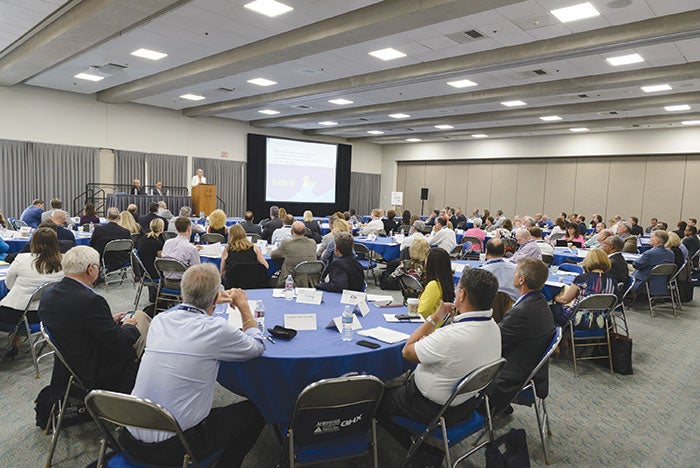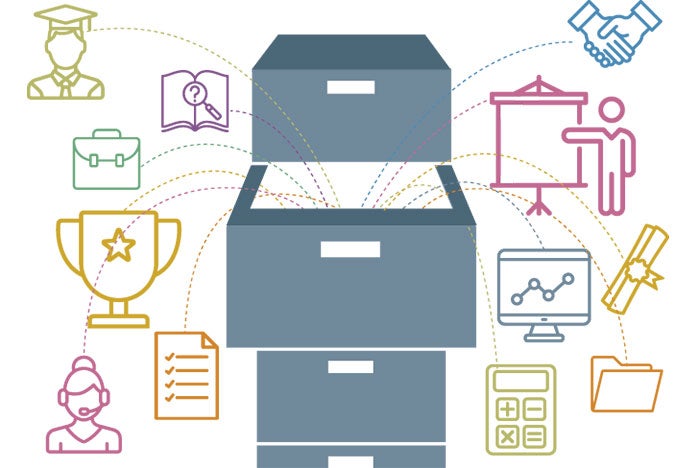Bringing focus to supply chain cost, quality and outcomes

For the fourth consecutive year, AHRMM’s Cost, Quality, and Outcomes Summit was held during the organization’s annual conference.
Though largely invisible to patients, the public and government policymakers, health care supply chain professionals stand at the vanguard of reducing health care costs while improving the safety and quality of patient care. The move to a value-based reimbursement model, as mandated by the Affordable Care Act, has created challenges but also abundant career opportunities for professionals involved in the strategic sourcing and management of medical supplies, devices and equipment, and the use of real-world data to guide those sourcing decisions.
Affiliated with the American Hospital Association (AHA), the Association for Healthcare Resource & Materials Management (AHRMM) not only champions the need for a holistic, efficient, traceable and transparent, clinically integrated supply chain that optimizes patient outcomes, but also provides career development resources for professionals in the field.
“With more than 4,300 members worldwide, AHRMM offers numerous opportunities for our members to expand their expertise and improve their strategic thinking and communication skills to reach their highest potential as supply chain professionals,” says Michael Schiller, CMRP, AHRMM’s senior director of supply chain.
Approximately 50 percent of AHRMM’s members work in hospitals or medical centers, while 29 percent work in an Integrated Delivery Network; 5 percent in group purchasing organizations; 4 percent in consulting firms; and 3 percent in Veterans Affairs, military or other government facilities. Another 9 percent are spread out among distributors, manufacturers and other key components of the health care supply chain.
As patient care continues to move outside of the acute care setting, “the supply chain has become more complex and comprehensive as it needs to span an entire episode of care rather than a point of care,” Schiller notes.
AHRMM has several programs underway to help supply chain professionals fully appreciate their strategic role in the evolving health care environment. One initiative, the Cost, Quality and Outcomes (CQO) movement, is both a supply chain model developed by AHRMM to ensure that health care organizations deliver quality care at a more affordable cost and a community of members dedicated to advancing this approach to sourcing for improved outcomes.
The CQO Movement “provides a holistic approach to the supply chain where cost is no longer the sole variable when considering sourcing decisions,” Schiller explains. “Cost needs to be carefully weighed alongside quality — defined as patient-centered care aimed at achieving the best possible clinical results — and alongside outcomes, or financial reimbursement driven by outstanding clinician care at the appropriate cost.” To help members increase their expertise and effectiveness in using this approach, AHRMM this year released a new eLearning course, “The Process of Operationalizing Contracts to Support CQO.”
This course “educates members in a step-by-step process to operationalize contracts to achieve a management route that will allow the entire organization to purchase quality products at the lowest cost,” Schiller says.
AHRMM also advocates for — and provides members resources regarding — a clinically integrated supply chain, a national effort to incorporate physicians and other clinicians into strategic sourcing decisions with the goal of improving care. Accordingly, the association developed and issued another eLearning course in 2017 called “Integrating Physician Leadership in Supply Chain Management,” which guides learners through methods of including clinicians in strategic supply chain decisions.
“AHRMM’s continuing education has innovated to meet the needs of our health care supply chain members by offering complimentary webinars and on-demand recordings, which began in January, as part of membership,” Schiller points out. “As a result, AHRMM has seen a
65 percent increase in education participation among our members.”
The association also convenes its annual AHRMM Conference & Exhibition, which enables members to connect with one another, discover new products and solutions, and attend workshops and educational sessions to learn best practices and success strategies. AHRMM’s next annual conference will take place Aug. 12-15 in Chicago.
“Traditionally, our annual conference has over 1,000 attendees and 100-plus speakers to engage and interact with,” Schiller says. “We actively encourage our members to network with fellow attendees and speakers and facilitate this by holding various networking events throughout the conference.”
The mainstay benefit of AHRMM, however, remains the Certified Materials & Resource Professional (CMRP) credential, administered by the AHA Certification Center. The CMRP designation, which signifies health care supply chain expertise, requires passing a comprehensive examination covering cost management, information technology and data management, logistics and inventory management, purchasing and contract management, and strategic planning and leadership.
Clearly, succeeding as a health care supply chain professional requires significant drive, motivation, education and intelligence. Managers in the field typically have at least a bachelor’s degree, although a master’s degree is preferred, according to Schiller, plus six to 10 years of supply chain, analytics, logistics, materials management, finance and operations experience.
Carolyn Schierhorn, a freelance writer based in Wheaton, Ill., specializes in health care-related topics.





